SUMMARY
This is AI generated summarization, which may have errors. For context, always refer to the full article.
![[OPINION] Moving forward from Qatar: A modest proposal](https://www.rappler.com/tachyon/2022/12/fifa-human-rights-december-22-2022.jpg)
We have learned a great deal about Qatar’s World Cup. The widespread demands for justice and equality achieved unprecedented scale for a World Cup host, and rightfully so. Certainly, the deaths of hundreds of workers during stadia construction due to abhorrent safety conditions constitute a heinous injustice.
Appalling human rights problems, including institutional discrimination against LGBTQ communities in Qatar, are also a deep concern. These are just a couple of the flaws of Qatari society exposed to the world by its staging of the most prized sports competition. This process also brought to light FIFA’s faults, including the system which awarded hosting to Qatar in the first place, a traditionally corrupt apparatus terminated by an investigation that led to the prosecution of host selection committee members and the resignation of high-level officials, including then-president Sepp Blatter.
People the world over found themselves criticizing FIFA for allowing the tournament to be hosted by a country with a less than stellar human rights record. There were unprecedented calls for a boycott because of the oil-rich Gulf state’s policies.
Wield that power
I view these developments as an opportunity for us all to call on FIFA to wield its powerful global influence toward more a meaningful social justice advocacy and become a catalyst for change in selected host countries.
Contrary to what many may believe after Qatar, using human rights as a standard for participation by FIFA is not unprecedented. After much wrangling within its leadership, FIFA suspended the all-white apartheid-era Football Association of South Africa and then expelled them once and for all in 1976. When the apartheid system began to be dismantled in 1991, FIFA readmitted a new multi-racial inclusive South African Football Association. This constitutes a significant precedent of social activism by FIFA. Somewhere since then, this spirit of social justice has been greyed out.
However, we may be faced with a prime opportunity to revive this spirit. With this worldwide sentiment at heart, I have several recommendations for FIFA moving forward.
Investigate
Investigate the alleged hundreds of worker deaths during stadia construction in Qatar and bring to justice all those culpable. With the 2022 World Cup now done, it’s too late for FIFA to take action. Partner with international agencies, for example the United Nations’ International Labour Organization, which repeatedly drew attention to the issue of migrant worker conditions in Qatar, and conduct an independent investigation into the deaths. Bring the full weight of the International Court of Justice to bear on guilty parties and prosecute them in a court of law. Grieving families can then eventually have closure and perhaps even compensation.
Work with Qatari government
Establish a team to work with the Qatari government in improving the enforcement of laws protecting migrant workers, maintaining high standards for labor conditions, and establishing a culture of transparency.
Partner with organizations
Establish a multilateral partnership with organizations like Amnesty International and Global Witness to write host selection criteria into FIFA procedure with human rights questions at its core. It’s evident that the masses are ready to make human rights records the primary hurdle which potential host countries must pass. It should be the first question asked in the process, before logistical concerns such as the condition of stadia and the number of hotels around them.
Conduct research for future hosting
Establish a component of the FIFA host selection committee to research and filter out countries based on human rights questions and other social justice criteria. Point out countries currently engaged in warfare with other countries, or supplying arms in countries where raging civil wars are causing widespread human suffering or are themselves conducting civil wars against their own people. Eliminate as choices any countries that have abhorrent practices towards ethnic minorities, workers, and other vulnerable groups, including LGBTQ communities, women, and people of color.
This process will bring to light any unresolved human rights issues in countries – when they are placed on the “cannot host list.” Conversely, maintain a list of countries with stellar or at minimum relatively innocuous human rights records. The first step for any country’s aspirations to host a future World Cup should be to pass the human rights test and be vested with the honor of being placed on the “approved potential hosts list.”
Scrutinize 2026 host
With these human rights criteria written firmly into procedure, begin implementing it immediately on the host selection process, starting with the already selected 2026 hosts. It’s not too late to suspend the awarding to Canada, Mexico, and USA. They aren’t planning to build any new stadia any time soon; all the designated host cities already each have a stadium – that was part of the selection process. Through the work of its host selection research subcommittee, FIFA can confront on behalf of the world any unresolved human rights issues in these countries and pressure their governments to make meaningful progress in addressing them.
One of the items I would like to see on Canada’s docket is the cultural genocide perpetrated against indigenous First Nations people. Only recently has the Canadian government begun to atone for this atrocity, with the recent revelation of mass unmarked graves containing hundreds of bodies at residential schools, a state-sponsored system implemented throughout the 20th century. Canadian Prime Minister Justin Trudeau and Pope Francis himself have expressed apologies, and reparations by some responsible parties have been paid, but no prosecutions have yet come to light.
What’s with Mexico?
Just this past September, less than three months before the start of Qatar 2022, Global Witness, the watchdog group monitoring human rights abuses around the world, declared Mexico the most dangerous country for environmental activists, recording over 50 murdered in 2021 alone, more than three-quarters of the world’s total. Over the past ten years, extra-judicial killings and forced disappearances of environmental activists have become almost routine, with 131 cases documented since 2017, carried out by both criminal organizations and corrupt government officials. The Inter-American Commission on Human Rights has continuously raised concerns about the lack of consultation with local indigenous communities affected by large-scale mining and construction projects. Environmental defenders have been attacked with impunity, and according to the Commission, 94% of criminal acts are unreported and less than 1% are resolved.
The rights of indigenous peoples is one of the main concerns I would like to see on the table as FIFA deliberates whether to continue with Mexico’s co-co-hosting of the 2026 World Cup. Along with representatives of organizations such as the IACHR, Global Witness, the UN’s Economic and Social Council which convenes the Permanent Forum on Indigenous Issues, and Mexican non-governmental organizations like the Citizens Council for Public Safety and Criminal Justice, FIFA can call for discussions with officials of the government. Current Mexican president López Obrador has expressed his sympathy with the historical experiences of Mexican indigenous peoples such as the Yaqui, who have been and continue to be particularly targeted by cartels and the military alike because of the rich natural resources found on their land. Leaders of tribal groups must play a central role at the table, and FIFA can exert its extensive influence to pressure the Mexican authorities to improve the state of indigenous rights in the country.
One of the darkest chapters in the long history of racial atrocities in the US is the Tulsa massacre, which has begun to garner much media attention only in recent years in the wake of continuous high-profile murders of unarmed black men by white police and vigilantes.
By the early 20th century, African-Americans had built a prosperous business district in Greenwood, a section of segregated Tulsa, Oklahoma. The neighborhood was self-sustaining and did not rely on resources from whose access black people were systematically and institutionally excluded. The African-American community, many of whom were formerly enslaved or descendants of slaves, created and thrived on their own resources.
Looking back
On June 1, 1921, in collusion with Tulsa law enforcement, a massive mob of over 5000 white men descended upon Greenwood, many of them deputized by civil government leaders using arms provided by officials and airplanes dropping turpentine bombs. The Oklahoma National Guard was called in to detain thousands of African-Americans while white people looted their homes and businesses and then set them ablaze. Estimates of dead range from about 40 to 140.
It wasn’t until the late 1990s that state and local government began to officially recognize that the Tulsa massacre even took place. For almost a century, government institutions swept this atrocity under the rug. Today, America is still in the process of searching its conscience for ways it can atone for the terrorist attack on Black Wall Street and the destruction of lives the state of Oklahoma perpetrated.
While incremental steps towards conciliation have been taken, such as official apologies, the construction of a memorial, reparations in the form of college scholarships, and the inclusion of this heinous act in history textbooks, there have yet to be any prosecutions or compensation to the victim’s families for the loss of their businesses and properties and robbing their descendants of a prosperous future. I would like to see FIFA bring the weight of its influence in securing a process for such compensation before the United States can be allowed to continue hosting the World Cup in 2026. In the process of national reckoning, FIFA can pressure the United States government to conduct an investigation and bring to light the names of those who committed, aided, and abetted this act of terrorism.
FIFA and its partner organizations can set a threshold, a minimum standard to be achieved in the progress towards resolving issues like these in each country, before USA-Mexico-Canada can proceed with hosting 2026.
If the minimum standards are not met, this leads me to my next recommendation.
Alternative hosts
With the possibility of USA-Mexico-Canada failing to meet minimum standards set forth by the FIFA-led committee evaluating human rights and social justice progress in each of these countries, the selection committee can recommend alternative hosts based on the human rights and social justice criteria now at the core of the process.
For us fans, this would make for a fun exercise in imagining some of the choices on that “approved potential host” list of countries, especially if we were to stick with the three-co-host format. Some of the potential combinations would be quite intriguing indeed.
How about Norway-Scotland-Iceland? Way back in June of 2021, Norway’s grassroots community became the first to urge a boycott of the World Cup in Qatar. Scotland and Iceland have never colonized and subjugated people in other continents and stolen their land. All three soccer-mad countries already have the stadia and tourism infrastructure to support the biggest sporting event in the world.
Another possible combination that comes to mind would be Jamaica-Trinidad & Tobago-Curaçao. The World Cup in the tropical Caribbean, where many football superstars vacation, sounds very enticing. To avoid the astronomical cost of new stadia construction and the potentially detrimental impact of huge crowds on the environment, just add a few more island nation hosts. Barbados, Martinique, St. Lucia, Aruba, and Dominica could round it out to eight, each hosting one group. They would only need one stadium each with a capacity of at least 35,000 for the group stage, and one in the entire region with 80,000 to host the semi-finals and final. To make them more competitive, they can field one Caribbean all-star team with the best players in the region to represent all eight host countries collectively, and whose group matches can rotate venues.
The same approach can perhaps be applied to some island nations of the South Pacific region to co-host with New Zealand. Fiji, Vanuatu, Tonga, Solomon Islands have all had fairly innocuous human rights records. I also like Switzerland-Austria-Slovenia and Ghana-Togo-Benin.
These are just a few of the World Cup hosting configurations that come to mind when human rights records are placed at the forefront of the host selection process. If USA-Mexico-Canada want to retain the hosting of the 2026 edition, then those governments can work towards resolving the plethora of human rights issues that plague their countries. This process can only help the people of Canada, Mexico, and the United States.
I won’t hold my breath, as none of this is likely to happen. But such are the musings of a football idealist, one of those freaks who incessantly lives, breathes, eats, dreams football and espouses the highest vision of the game. That’s how I learned it in my youth, and that’s the foundation upon which my love for the beautiful game of the masses is based. – Rappler.com
Kokoy Severino is a career educator and nationally certified youth soccer coach in the United States who now lives in his home country Philippines. He is on the coaching staff of the Football for Peace movement, of the Elmer Lacknet Bedia Football Academy, and a core member of Initiatives and Hearts for Indigenous People, a collective of volunteer soccer coaches who work with youths in poverty, particularly among the marginalized ethnic minorities of the Philippines.
Add a comment
How does this make you feel?



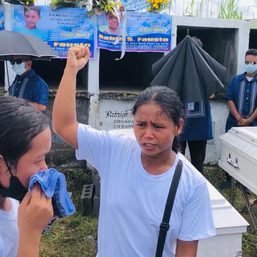


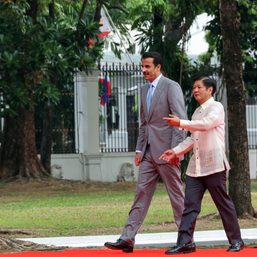
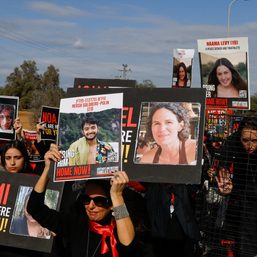
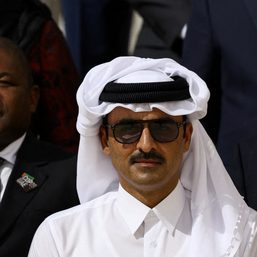
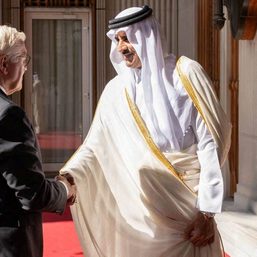
There are no comments yet. Add your comment to start the conversation.